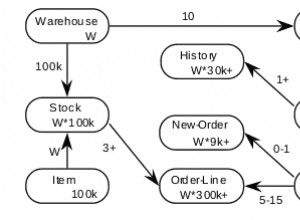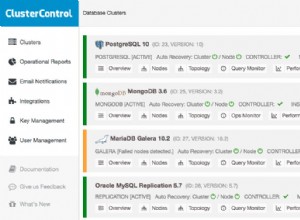Oui, c'est possible, pourquoi s'appuyer sur le code de quelqu'un d'autre alors que vous pouvez créer votre propre usine JNDI? créez simplement une classe qui implémente javax.naming.spi.ObjectFactory et un bean qui extrait mongo du contexte JNDI, j'ai configuré cela pour les données de printemps -mongo Objet MongoTemplate.
public class CustomMongoJNDIFactory implements ObjectFactory {
public Object getObjectInstance(Object obj, Name name, Context nameCtx,
Hashtable<?, ?> environment) throws Exception {
validateProperty(obj, "Invalid JNDI object reference");
MongoTemplate mongoTemplate = null;
String db = null;
String host = null;
String username = null;
String password = null;
int port = 27017;
Reference ref = (Reference) obj;
Enumeration<RefAddr> props = ref.getAll();
while (props.hasMoreElements()) {
RefAddr addr = (RefAddr) props.nextElement();
String propName = addr.getType();
String propValue = (String) addr.getContent();
if (propName.equals("db")) {
db = propValue;
} else if (propName.equals("host")) {
host = propValue;
} else if (propName.equals("username")) {
username = propValue;
} else if (propName.equals("password")) {
password = propValue;
} else if (name.equals("port")) {
try {
port = Integer.parseInt(propValue);
} catch (NumberFormatException e) {
throw new NamingException("Invalid port value " + propValue);
}
}
}
// validate properties
validateProperty(db, "Invalid or empty mongo database name");
validateProperty(host, "Invalid or empty mongo host");
validateProperty(username, "Invalid or empty mongo username");
validateProperty(password, "Invalid or empty mongo password");
//create mongo template
mongoTemplate = new MongoTemplate(new Mongo(host, port), db,
new UserCredentials(username, password));
return mongoTemplate;
}
/**
* Validate internal String properties
*
* @param property
* @param errorMessage
* @throws NamingException
*/
private void validateProperty(String property, String errorMessage)
throws NamingException {
if (property == null || property.trim().equals("")) {
throw new NamingException(errorMessage);
}
}
/**
* Validate internal Object properties
*
* @param property
* @param errorMessage
* @throws NamingException
*/
private void validateProperty(Object property, String errorMessage)
throws NamingException {
if (property == null) {
throw new NamingException(errorMessage);
}
}
}
Haricot de printemps :
@Configuration
@Qualifier("mongoTemplate")
public class CustomMongoTemplate {
public @Bean MongoTemplate mongoTemplate() throws Exception {
Context initCtx = new InitialContext();
Context envCtx = (Context) initCtx.lookup("java:comp/env");
return (MongoTemplate) envCtx.lookup("bean/MyMongoBean");
}
}
Contexte.xml :
<Resource name="bean/MyMongoBean" auth="Container"
type="org.springframework.data.mongodb.core.MongoTemplate"
factory="com.package.CustomMongoJNDIFactory"
host="" db="" username="" password=""/>
Web.xml
<resource-env-ref>
<description>Mongo JNDI configuration</description>
<resource-env-ref-name>comp/env/bean/MyMongoBean</resource-env-ref-name>
<resource-env-ref-type>org.springframework.data.mongodb.core.MongoTemplate</resource-env-ref-type>
</resource-env-ref>




